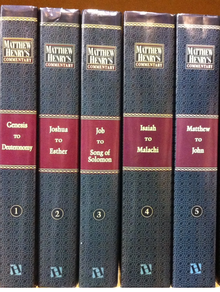Study
0 From the Book of Isaiah: Is the Introduction of the Book
Isaiah
is a very long book. Thus, we will study the first 39 Chapters then
move on to something else (just to make sure you are not bored....)
Isaiah,
the 'evangelical prophet', began his ministry at the end of Uzziah's
reign, and continued through the reigns of Jotham, Ahaz and Hezekiah.
A Jewish tradition, to which allusion is perhaps made in Heb. 11:37,
states that he was slain in the reign of Manasseh by being sawn
asunder . He was a man of outstanding faith in God, and had to
contend with many difficulties, for the moral and spiritual condition
of the people was corrupt. The rich oppressed the poor, and reveled
in wanton luxury; justice was shamelessly bought and sold. When in
distress, men turned to idols; and when in danger, they sought
alliances with heathen powers. Isaiah urged a quiet trust in
Jehovah, as the only sure path of safety; and when, in the supreme
crisis of the Assyrian invasion, his counsel was followed, it was
triumphantly vindicated in the destruction of the Assyrian army.
Isaiah
spoke much of impending judgment; but he foresaw also the coming of
the Messiah, and the establishment of His kingdom. His interest was
not confined to his own nation of Judah only. He prophesied also
concerning the northern kingdom of Israel (whose overthrow he
witnessed). And the heathen nations surrounding Palestine.
The
last twenty-seven chapter 40-66 contain a very remarkable group of
prophecies, spoken primarily for the comfort and warning of those who
lived in the period of the Jewish captivity in Babylon after the
destruction of Jerusalem by Nebuchadnezzar about 150 years after
Isaiah's time. It is not possible here to discuss the modern
contention that chapters 40-66 are not the work of Isaiah, but, of
one or more prophets who lived in the period of exile, or later. The
problem is dealt with in the Introduction to Isaiah in The New
Bible Commentary Revised, where the arguments adduced in favour
of and against the unity of the book are carefully set down and
analyzed. Suffice it to say here that these studies are based upon
the view, not lightly held, and supported by ancient Jewish
tradition, and by the writers of the New Testament, that Isaiah was
the author of the whole book. He had already foreseen in the vision
of 13:1- 14:23 (to which his name is attached; see 13:1) and in other
visions eg., 21:1-10; 35; 39:6) the rise of Babylon to power and
glory, and then her downfall, and the release of her Jewish captives.
But in these later prophecies the glad message of redemption is
revealed to him in far greater fullness. He takes his stand in
prophetic vision in that later age, and declares the messages which
God puts into his heart and upon his lips.
The
chapters fall into three main sections, each ending with a statement
of the doom of the wicked (48:22; 57:20, 21; 66:24). Embedded in
these chapters are four prophecies, usually known as the 'Servant'
passages, in which the prophet describes God's ideal Servant, and,
in so doing, draws a perfect picture of the Lord Jesus Christ. This
is an illustration of a notable feature of the prophecies of these
chapters, that they look far beyond the period of the return under
Cyrus to the coming of Jesus -Christ, and the final events of this
present age. While spoken primarily to and of Israel, they have a
message to all who belong to Christ. The triumphant faith in God,
the revelation of God's character, and of the principles of His
working, the insight into the human heart in its sin and weakness,
the 'exceeding great and precious promises', with which these
chapters abound, these and other features make this part of Scripture
a veritable mine of wealth to the Christian reader.


